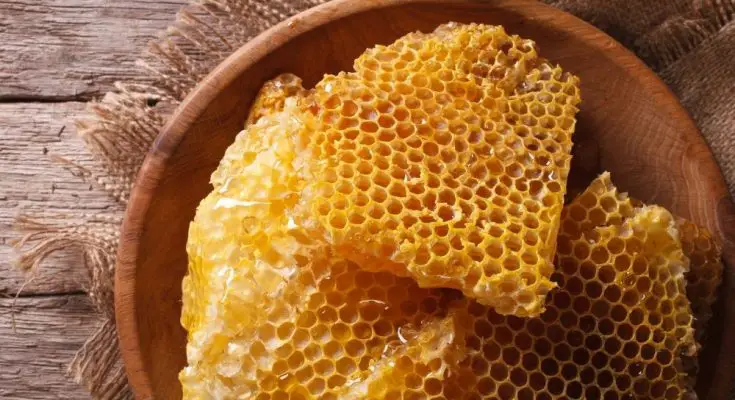It’s no secret that bees are responsible for pollinating and for producing potent health products with antibacterial, antiviral, and anti-inflammatory properties. In fact, honey’s nutritional, medical, and taste benefits are so influential that the honey market has continued to grow globally each year.
However, while honey production is an essential component of beekeeping, beeswax is also an important bee product. A variety of different industries uses beeswax because the product offers so many versatile benefits. Many people may not realize it, but beeswax is one of the most critical ingredients in some of our most-loved products. To learn more about the different uses and benefits of beeswax, continue reading below.
What Is Beeswax?
Before we dive into the different uses and benefits of beeswax, let’s examine what this natural product is and where it comes from. Beeswax comes from the honeycomb created by an active honeybee hive. It primarily consists of pollen oils that the honeybees collect and form.
The contents and consistency of this product have led it to become a major resource in several industries. The three trades that most commonly use beeswax are the medicinal, food and beverage, and cosmetics industries. Let’s review each of these below.
Medical Industry
Although there’s no scientific proof to support the theory that beeswax is a powerful natural remedy, this product is still utilized by various natural health businesses still utilize the product. Natural health businesses believe that beeswax can alleviate high cholesterol, fungal infections, and other skin conditions. Manufacturers also believe that beeswax shares honey’s antibacterial, antiviral, and anti-inflammatory properties. As a result, beeswax has only increased in demand for natural home remedies. In addition, customers worldwide purchase bee products online to use honey, bee pollen, and beeswax to sustain their health.
Food & Beverage Industry
For years, restaurants, cafés, and other food and beverage businesses have used honey as a staple ingredient for their recipes. The syrup’s naturally sweet flavor and viscous texture make it a delectable and delicious ingredient to add to any recipe.
The food and beverage industry also uses beeswax to support their businesses. However, the uses of these two bee products could not be more different. Whereas companies add honey as an ingredient to recipes, beeswax is usually used as a food preservation material. The malleable flexibility of beeswax makes this bee product perfect for wrapping over foods and leftovers. Beeswax wraps have become particularly popular within the industry in the last few years due to their eco-friendly properties. Consumers can also use beeswax to wrap their foods and reuse the product by handwashing it with simple soap and water. This design doesn’t just prevent waste; it’s also highly economical.
Cosmetics Industry
The food and beverage industry isn’t the only industry that uses beeswax wraps to add texture to its products. The cosmetics industry also utilizes natural beeswax’s texture and color in various soaps, masks, and skin-care products. The natural thickness of the wax makes it ideal for giving cosmetics formulas shape. The sweet and floral scent of beeswax also makes it an optimal ingredient to add to perfumes and fragrances.
Although honey comes with its own array of advantages, don’t overlook beeswax products’ different uses and benefits. This bee product will only become more common as a sustainable, economic, and practical resource for different industries. Consider how honey and beeswax could be resources for your lifestyle or business today.
FAQ
What is beeswax?
Beeswax comes from the honeycomb created by an active honeybee hive. It primarily consists of pollen oils that the honeybees collect and form.
Why is beeswax used in cosmetics?
The cosmetics industry also utilizes natural beeswax’s texture and color in various soaps, masks, and skin-care products. The natural thickness of the wax makes it ideal for giving cosmetics formulas shape. The sweet and floral scent of beeswax also makes it an optimal ingredient to add to perfumes and fragrances.



